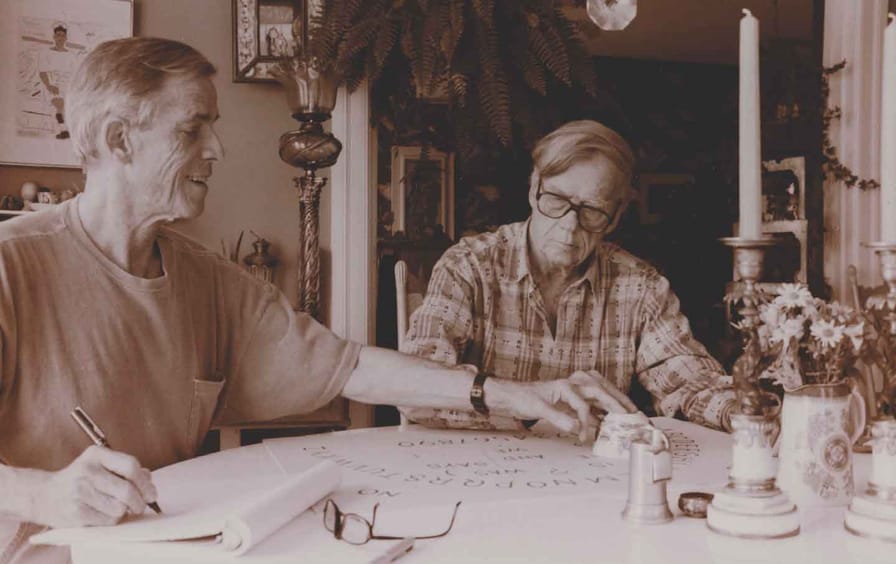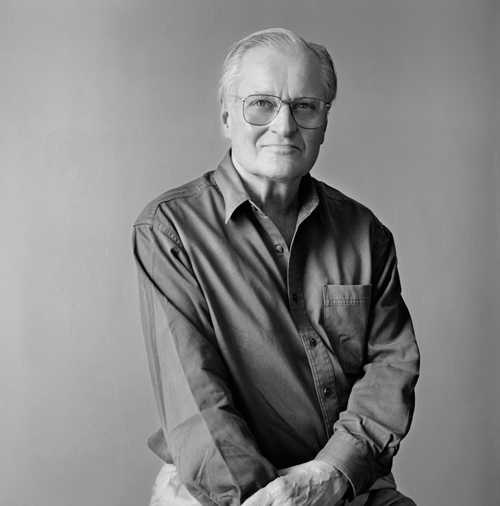Blog Archive
-
▼
2023
(253)
-
▼
May
(29)
- Archibald MacLeish
- Archibald MacLeish
- Allen Ginsberg
- Allen Ginsberg
- Allen Ginsberg
- Allen Ginsberg
- James Merrill
- James Merrill
- James Merrill
- John Ashbery
- John Ashbery
- John Ashbery
- John Ashbery
- John Ashbery
- John Ashbery
- John Ashbery
- John Ashbery
- John Ashbery
- John Ashbery
- Dylan Thomas
- Dylan Thomas
- Dylan Thomas
- Dylan Thomas
- John Ashbery
- Edna St. Vincent Millay
- Edna St. Vincent Millay
- Edna St. Vincent Benet
- Edna St. Vincent Millay
- Kenneth Koch
-
▼
May
(29)
Archibald MacLeish
Archibald MacLeish
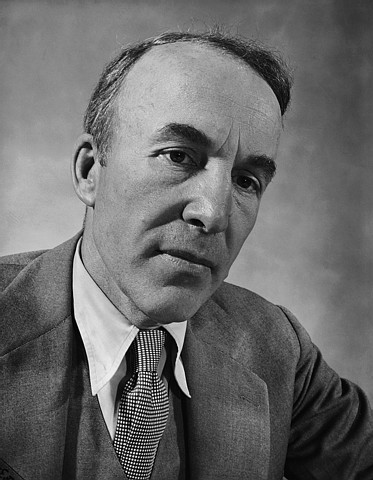
You, Andrew Marvell
And here face down beneath the sun
And here upon earth’s noonward height
To feel the always coming on
The always rising of the night:
To feel creep up the curving east
The earthy chill of dusk and slow
Upon those under lands the vast
And ever climbing shadow grow
And strange at Ecbatan the trees
Take leaf by leaf the evening strange
The flooding dark about their knees
The mountains over Persia change
And now at Kermanshah the gate
Dark empty and the withered grass
And through the twilight now the late
Few travelers in the westward pass
And Baghdad darken and the bridge
Across the silent river gone
And through Arabia the edge
Of evening widen and steal on
And deepen on Palmyra’s street
The wheel rut in the ruined stone
And Lebanon fade out and Crete
High through the clouds and overblown
And over Sicily the air
Still flashing with the landward gulls
And loom and slowly disappear
The sails above the shadowy hulls
And Spain go under and the shore
Of Africa the gilded sand
And evening vanish and no more
The low pale light across that land
Nor now the long light on the sea:
And here face downward in the sun
To feel how swift how secretly
The shadow of the night comes on ...
Allen Ginsberg
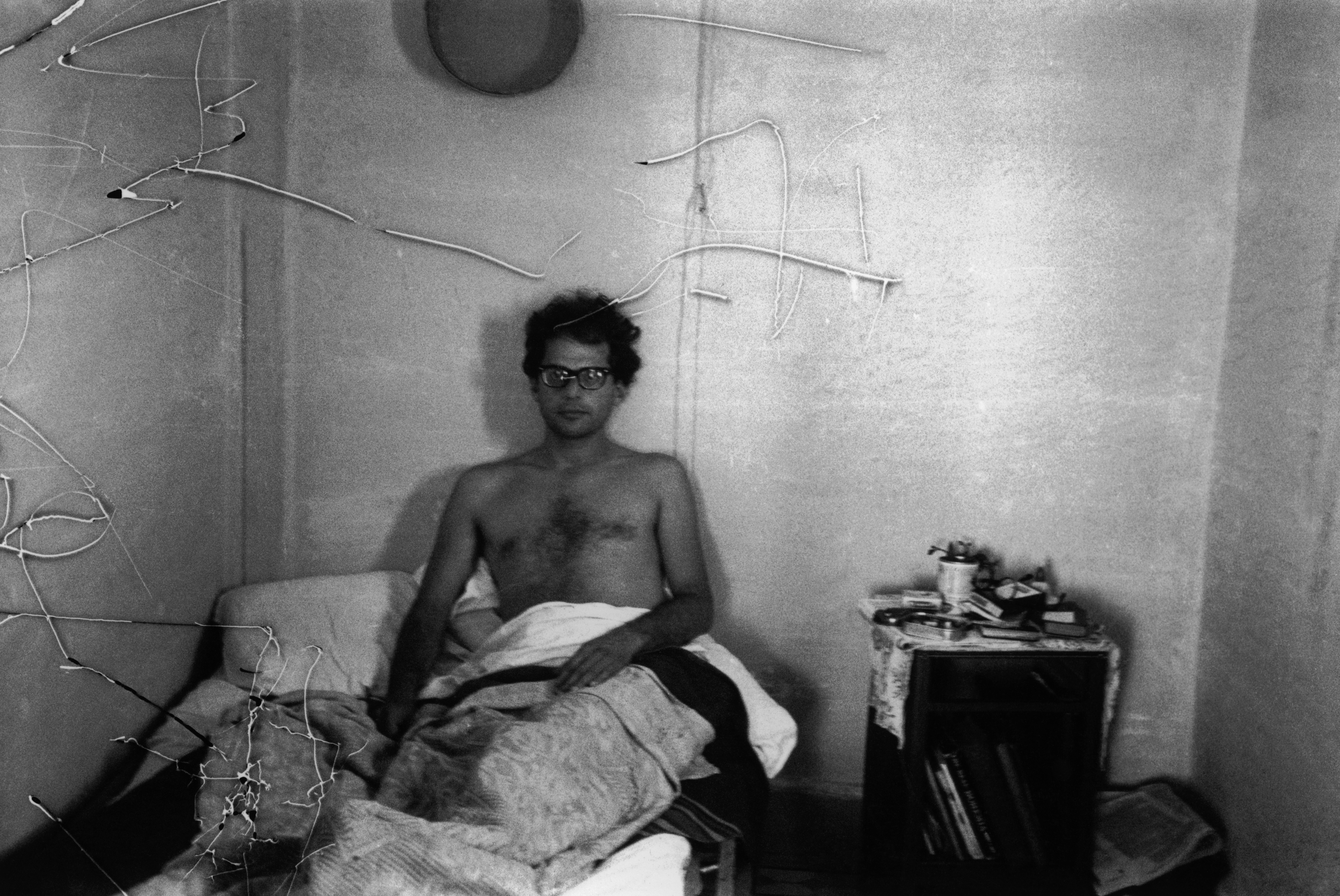
Homework
Homage to Kenneth Koch
If I were doing my Laundry I'd wash my dirty Iran
I'd throw in my United States, and pour on the Ivory Soap,
scrub up Africa, put all the birds and elephants back in
the jungle,
I'd wash the Amazon river and clean the oily Carib & Gulf of Mexico,
Rub that smog off the North Pole, wipe up all the pipelines in Alaska,
Rub a dub dub for Rocky Flats and Los Alamos, Flush that sparkly
Cesium out of Love Canal
Rinse down the Acid Rain over the Parthenon & Sphinx, Drain the Sludge
out of the Mediterranean basin & make it azure again,
Put some blueing back into the sky over the Rhine, bleach the little
Clouds so snow return white as snow,
Cleanse the Hudson Thames & Neckar, Drain the Suds out of Lake Erie
Then I'd throw big Asia in one giant Load & wash out the blood &
Agent Orange,
Dump the whole mess of Russia and China in the wringer, squeeze out
the tattletail Gray of U.S. Central American police state,
& put the planet in the drier & let it sit 20 minutes or an
Aeon till it came out clean
Allen Ginsberg
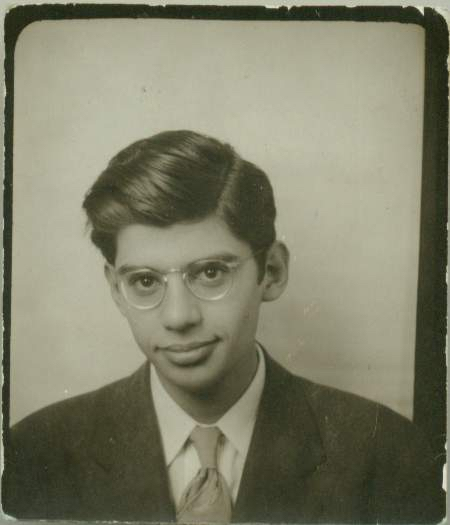
All afternoon cutting bramble blackberries off a tottering brown
fence
the leaves,
found a good coffeepot in the vines by the porch, rolled a big tire out
of the scarlet bushes, hid my marijuana;
wet the flowers, playing the sunlit water each to each, returning for
godly extra drops for the stringbeans and daisies;
three times walked round the grass and sighed absently:
my reward, when the garden fed me its plums from the form of a
small tree in the corner,
Allen Ginsberg
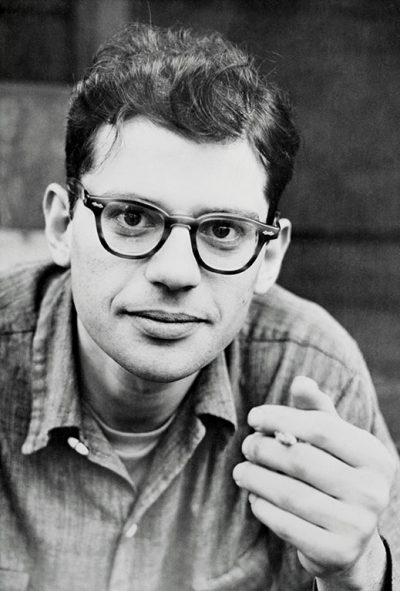
First Party At Ken Kesey's With Hell's Angels
Cool black night thru redwoods
cars parked outside in shade
behind the gate, stars dim above
the ravine, a fire burning by the side
porch and a few tired souls hunched over
in black leather jackets. In the huge
wooden house, a yellow chandelier
at 3 A.M. the blast of loudspeakers
hi-fi Rolling Stones Ray Charles Beatles
Jumping Joe Jackson and twenty youths
dancing to the vibration thru the floor,
a little weed in the bathroom, girls in scarlet
tights, one muscular smooth skinned man
sweating dancing for hours, beer cans
bent littering the yard, a hanged man
sculpture dangling from a high creek branch,
children sleeping softly in their bedroom bunks.
And 4 police cars parked outside the painted
gate, red lights revolving in the leaves.
Allen Ginsberg

with Peter Orlovsky, Brendan Behan (1960)
photograph by Richard Avedon
A Supermarket in California
What thoughts I have of you tonight, Walt Whitman, for I walked down the sidestreets under the trees with a headache self-conscious looking at the full moon.In my hungry fatigue, and shopping for images, I went into the neon fruit supermarket, dreaming of your enumerations!
What peaches and what penumbras! Whole families shopping at night! Aisles full of husbands! Wives in the avocados, babies in the tomatoes!—and you, Garcia Lorca, what were you doing down by the watermelons?
I saw you, Walt Whitman, childless, lonely old grubber, poking among the meats in the refrigerator and eyeing the grocery boys.
I heard you asking questions of each: Who killed the pork chops? What price bananas? Are you my Angel?
I wandered in and out of the brilliant stacks of cans following you, and followed in my imagination by the store detective.
We strode down the open corridors together in our solitary fancy tasting artichokes, possessing every frozen delicacy, and never passing the cashier.
Where are we going, Walt Whitman? The doors close in an hour. Which way does your beard point tonight?
(I touch your book and dream of our odyssey in the supermarket and feel absurd.)
Will we walk all night through solitary streets? The trees add shade to shade, lights out in the houses, we'll both be lonely.
Will we stroll dreaming of the lost America of love past blue automobiles in driveways, home to our silent cottage?
Ah, dear father, graybeard, lonely old courage-teacher, what America did you have when Charon quit poling his ferry and you got out on a smoking bank and stood watching the boat disappear on the black waters of Lethe?
Berkeley, 1955
James Merrill
Voices from the Other World
James Merrill

In the Dark
Come, try this exercise:
Focus a beam,
Emptied of thinking, outward through shut eyes
On X, your “god” of long ago.
Wherever he is now the photons race,
A phantom, unrelenting stream,
For nothing lights up. No
Sudden amused face,
No mote, no far-out figment to obstruct
The energy—
It just spends
And spends itself, and who will ever know
Unless he felt you aim at him, and ducked
Or you before the session ends
Begin to glow
James Merrill
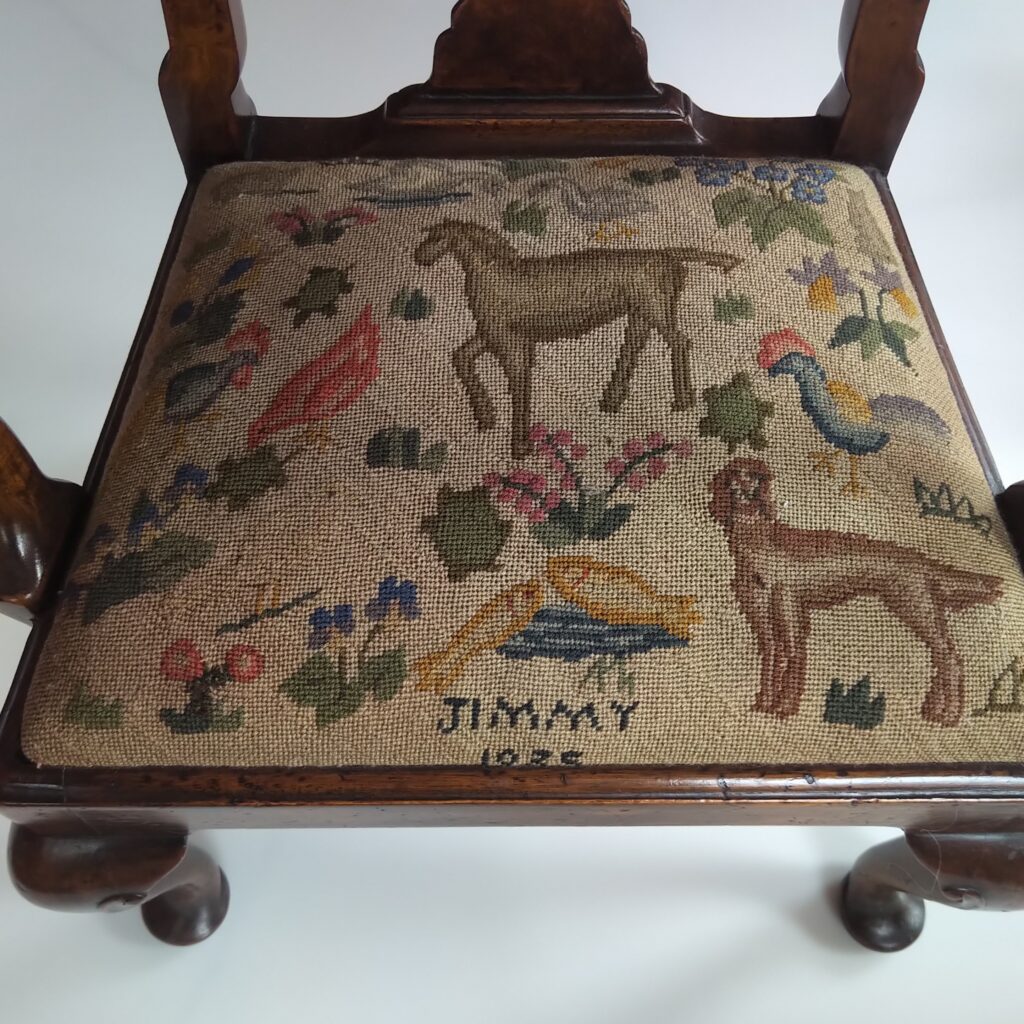
John Ashbery

Memories of Imperialsm
Dewey took Manila and soon after invented the decimal system that keeps libraries from collapsing even unto this day. A lot of mothers immediately started naming their male offspring “Dewey,” which made him queasy. He was already having second thoughts about imperialism. In his dreams he saw library books with milky numbers on their spines floating in Manila Bay. Soon even words like “vanilla” and “mantilla” would cause him to vomit. The sight of a manila envelope precipitated him into his study, where all day, with the blinds drawn, he would press fingers against temples, muttering “What have I done?” all the while. Then, gradually, he began feeling a bit better. The world hadn’t ended. He’d go for walks in his old neighborhood, marveling at the changes there, or at the lack of them. “If one is to go down in history, it is better to do so for two things rather than one,” he would stammer, none too meaningfully. One day his wife took him aside in her boudoir, pulling the black lace mantilla from her head and across her bare breasts until his head was entangled in it. “Honey, what am I supposed to say?” “Say nothing, you big boob Just be glad you got away with it and are famous.” Speaking of boobs…” “Now you’re getting the idea. Go file those books on those shelves over there. Come back only when you’re finished.” To this day schoolchildren wonder about his latter career as a happy pedant, always nice with children, thoughtful toward their parents. He wore a gray ceramic suit walking his dog, a “bouledogue,” he would point out. People would peer at him from behind shutters, watchfully, hoping no new calamities would break out, or indeed that nothing more would happen, ever, that history had ended. Yet it hadn’t, as the admiral himself would have been the first to acknowledge.
John Ashbery

Two Sonnets
from The Tennis Court Oath (1962)
I. DIDO The body’s products become Fatal to it. Our spit Would kill us, but we Die of our heat. Though I say the things I wish to say They are needless, their own flame conceives it. So I am cheated of perfection. II. THE IDIOT O how this sullen, careless world Ignorant of me is! These rocks, those homes Know not the touch of my flesh, now is there one tree Whose shade has known me for a friend. I’ve wandered the wide world over. No man I’ve known, no friendly beast Has come and put its nose into my hands. No maid has welcomed my face with a kiss. Yet once, as I took passage From Gibraltar to Cape Horn I met some friendly mariners on the boat And as we struggled to keep the ship from sinking The very waves seemed friendly, and the sound The pray made as it hit the front of the boat.
John Ashbery
from Your Name Here (2000)
Once after school, hobbling from place to place, I remember you liked the dry kind of cookies with only a little sugar to flavor them. I remember that you liked Wheatena. You were the only person I knew who did. Don’t you remember how we used to fish for kelp? Got to the town with the relaxed, suburban name, Remembering how trees were green there, Greener than a sudden embarrassed lawn in April. How we would like to live there, and not in a different life, either. We sweltered along in our union suits, past signs marked “Answer” and “Repent,” and tried both, and other things. Then—surprise! Velvet daylight came along to back us up, providing the courage that was always ours, had we but known how to access it downstairs. We used to crawl to so many events together: a symphony of hogs in a lilac tree, and other, possibly even more splendid, things until the eyelid withdrew. Now I can sample your shorts. So much more is there for us now— runnels that threaten to drown the indifferent one who sticks his toe in them. Much, much more light. To whose office shall we go tomorrow? I’d like to hear the new recording of clavier variations. Oh, help us someone! Put out the night and the fire, whose backdraft is even now humming her old song of antipathies.
John Ashbery

Mixed Feelings
from Self-Portrait in a Convex Mirror (1975)
A pleasant smell of frying sausages Attacks the sense, along with an old, mostly invisible Photograph of what seems to be girls lounging around An old fighter bomber, circa 1942 vintage. How to explain to these girls, if indeed that’s what they are, These Ruths, Lindas, Pats and Sheilas About the vast change that’s taken place In the fabric of our society, altering the texture Of all things in it? And yet They somehow look as if they knew, except That it’s so hard to see them, it’s hard to figure out Exactly what kind of expressions they’re wearing. What are your hobbies, girls? Aw nerts, One of them might say, this guy’s too much for me. Let’s go on and out, somewhere Through the canyons of the garment center To a small café and have a cup of coffee. I am not offended that these creatures (that’s the word) Of my imagination seem to hold me in such light esteem, Pay so little heed to me. It’s part of a complicated Flirtation routine, anyhow, no doubt. But this talk of The garment center? Surely that’s California sunlight Belaboring them and the old crate on which they Have draped themselves, fading its Donald Duck insignia To the extreme point of legibility. Maybe they were lying but more likely their Tiny intelligences cannot retain much information. Not even one fact, perhaps. That’s why They think they’re in New York. I like the way They look and act and feel. I wonder How they got that way, but am not going to Waste any more time thinking about them. I have already forgotten them Until some day in the not too distant future When we meet possibly in the lounge of a modern airport, They looking as astonishingly young and fresh as when this picture was made But full of contradictory ideas, stupid ones as well as Worthwhile ones, but all flooding the surface of our minds As we babble about the sky and the weather and the forests of change.
John Ashbery

Paradoxes and Oxymorons
This poem is concerned with language on a very plain level.
Look at it talking to you. You look out a window
Or pretend to fidget. You have it but you don't have it.
You miss it, it misses you. You miss each other.
The poem is sad because it wants to be yours, and cannot.
What's a plain level? It is that and other things,
Bringing a system of them into play. Play?
Well, actually, yes, but l consider play to be
A deeper outside thing, a dreamed role-pattern,
As in the division of grace these long August days
Without proof. Open-ended. And before you know
It gets lost in the steam and chatter of typewriters.
It has been played once more. I think you exist only
To tease me into doing it, on your level, and then you aren't there
Or have adopted a different attitude. And the poem
Has set me softly down beside you. The poem is you.
John Ashbery

open doorway, he saw that it was raining. It was not raining much.
KAFKA, Wedding Preparations in the Country
The concept is interesting: to see, as though reflected
In streaming windowpanes, the look of others through
Their own eyes. A digest of their correct impressions of
Their self-analytical attitudes overlaid by your
Ghostly transparent face. You in falbalas
Of some distant but not too distant era, the cosmetics,
The shoes perfectly pointed, drifting (how long you
Have been drifting; how long I have too for that matter)
Like a bottle-imp toward a surface which can never be
approached,
Never pierced through into the timeless energy of a present
Which would have its own opinions on these matters,
Are an epistemological snapshot of the processes
That first mentioned your name at some crowded cocktail
Party long ago, and someone (not the person addressed)
Overheard it and carried that name around in his wallet
For years as the wallet crumbled and bills slid in
And out of it. I want that information very much today,
Can't have it, and this makes me angry.
I shall use my anger to build a bridge like that
Of Avignon, on which people may dance for the feeling
Of dancing on a bridge. I shall at last see my complete face
Reflected not in the water but in the worn stone floor of my bridge.
I shall keep to myself.
I shall not repeat others' comments about me.
John Ashbery
For John Clare
Kind of empty in the way it sees everything, the earth gets to its feet andsalutes the sky. More of a success at it this time than most others it is. The feeling that the sky might be in the back of someone's mind. Then there is no telling how many there are. They grace everything--bush and tree--to take the roisterer's mind off his caroling--so it's like a smooth switch back. To what was aired in their previous conniption fit. There is so much to be seen everywhere that it's like not getting used to it, only there is so much it never feels new, never any different. You are standing looking at that building and you cannot take it all in, certain details are already hazy and the mind boggles. What will it all be like in five years' time when you try to remember? Will there have been boards in between the grass part and the edge of the street? As long as that couple is stopping to look in that window over there we cannot go. We feel like they have to tell us we can, but they never look our way and they are already gone, gone far into the future--the night of time. If we could look at a photograph of it and say there they are, they never really stopped but there they are. There is so much to be said, and on the surface of it very little gets said.
There ought to be room for more things, for a spreading out, like. Being immersed in the details of rock and field and slope --letting them come to you for once, and then meeting them halfway would be so much easier--if they took an ingenuous pride in being in one's blood. Alas, we perceive them if at all as those things that were meant to be put aside-- costumes of the supporting actors or voice trilling at the end of a narrow enclosed street. You can do nothing with them. Not even offer to pay.
It is possible that finally, like coming to the end of a long, barely perceptible rise, there is mutual cohesion and interaction. The whole scene is fixed in your mind, the music all present, as though you could see each note as well as hear it. I say this because there is an uneasiness in things just now. Waiting for something to be over before you are forced to notice it. The pollarded trees scarcely bucking the wind--and yet it's keen, it makes you fall over. Clabbered sky. Seasons that pass with a rush. After all it's their time too--nothing says they aren't to make something of it. As for Jenny Wren, she cares, hopping about on her little twig like she was tryin' to tell us somethin', but that's just it, she couldn't even if she wanted to--dumb bird. But the others--and they in some way must know too--it would never occur to them to want to, even if they could take the first step of the terrible journey toward feeling somebody should act, that ends in utter confusion and hopelessness, east of the sun and west of the moon. So their comment is: "No comment." Meanwhile the whole history of probabilities is coming to life, starting in the upper left-hand corner, like a sail.
D. H. Lawrence
from Pansies THE WHITE HORSE The youth walks up to the white horse, to put its halter on and the horse looks at him in silence. They are s...
-
from Mentone, Cairo and Corfu. Cairo in 1890. (1895) But in Cairo, at least, the work of repairing goes on very slowly; three hundred mos...
-
from Rodman the Keeper Southern Sketches (1880) "K EEPER of what? Keeper of the dead. Well, it is easier to keep the dead than the liv...
-
from The Orator ( Whilomville Stories) IN the school at Whilomville it was the habit, when children had progressed to a certain class, to ...

